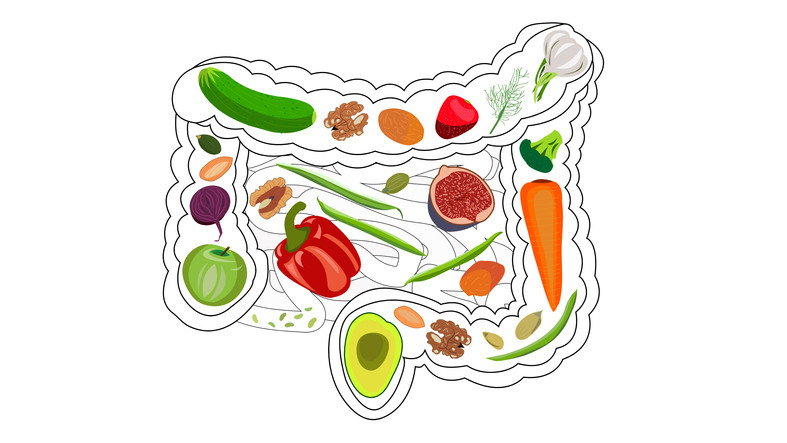In recent years, there has been a growing interest in the connection between diet and gut health. It is now widely recognized that the types of food we eat can significantly impact the composition and diversity of the microorganisms living in our gut, known as the gut microbiome. Studies have shown that a vegan diet, which is free from all animal products, can have a positive effect on gut health by promoting a more diverse and beneficial microbiome.
One of the main reasons for this is the high fiber content of a vegan diet. Fiber is a carbohydrate that is not digested by the body but instead passes through the digestive system largely intact. When fiber reaches the large intestine, it becomes a source of food for the beneficial bacteria that live there. These bacteria ferment the fiber, producing short-chain fatty acids (SCFAs) as a byproduct. SCFAs have been shown to have a range of health benefits, including reducing inflammation and promoting the growth of beneficial bacteria.
Vegan diets are typically high in fiber, as they include large amounts of fruits, vegetables, whole grains, legumes, and nuts. In contrast, animal-based foods are generally low in fiber and can contribute to a less diverse and less healthy microbiome. For example, meat and dairy products have been shown to increase the abundance of harmful bacteria in the gut, while reducing the number of beneficial bacteria.
In addition to being high in fiber, vegan diets are also low in saturated fat and cholesterol. These compounds (saturated fat and cholesterol) have been linked to an increased risk of heart disease and other chronic health conditions. By avoiding animal products, vegans can reduce their intake of these harmful substances, leading to a healthier gut and a healthier body overall.
There are also specific plant-based foods that have been shown to have a particularly positive effect on gut health. For example, fermented foods like sauerkraut, kimchi, and miso contain probiotics, which are live microorganisms that can colonize the gut and provide health benefits. Other foods like garlic, onions, and leeks contain prebiotics, which are types of fiber that feed the beneficial bacteria in the gut.
Overall, there is a growing body of evidence to support the link between a vegan diet and improved gut health. By promoting a more diverse and beneficial microbiome, a vegan diet can help to reduce the risk of a range of health problems, including inflammatory bowel disease, colorectal cancer, and obesity. If you want to improve your gut health, switching to a vegan diet could be a great place to start.
Here’s to a healthy gut microbiome,
~Your Neighborhood Health Dealing Nutritionist & Chef~ K



 5 Ways a Vegan Diet Can Transform Your Skin: The Benefits of Plant-Based Skincare
5 Ways a Vegan Diet Can Transform Your Skin: The Benefits of Plant-Based Skincare

